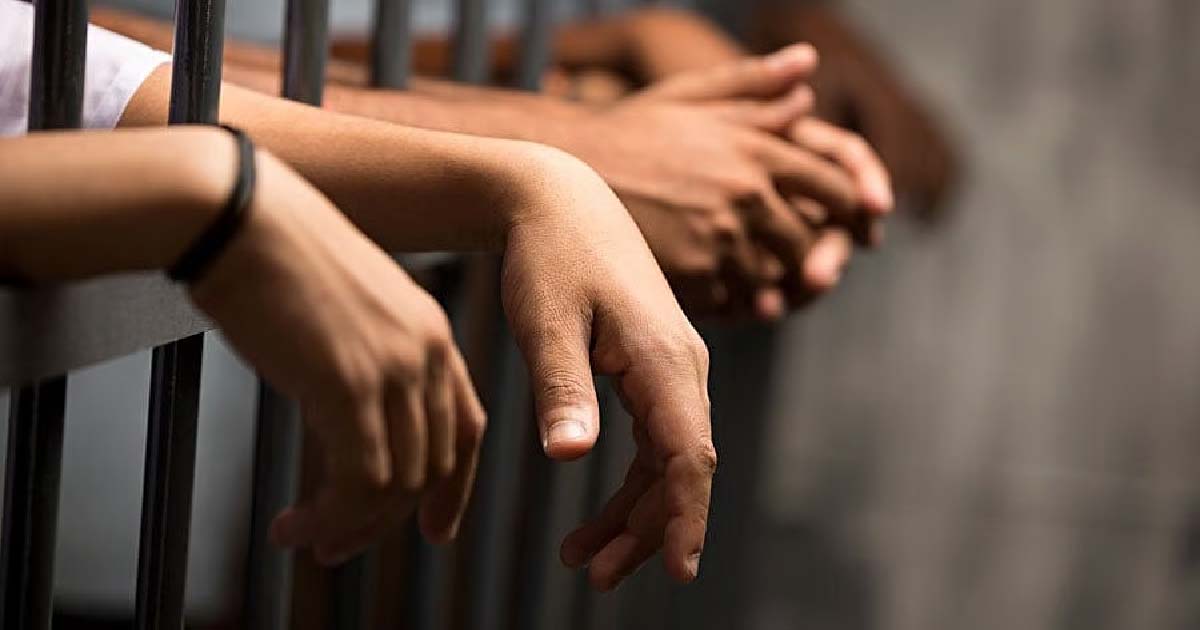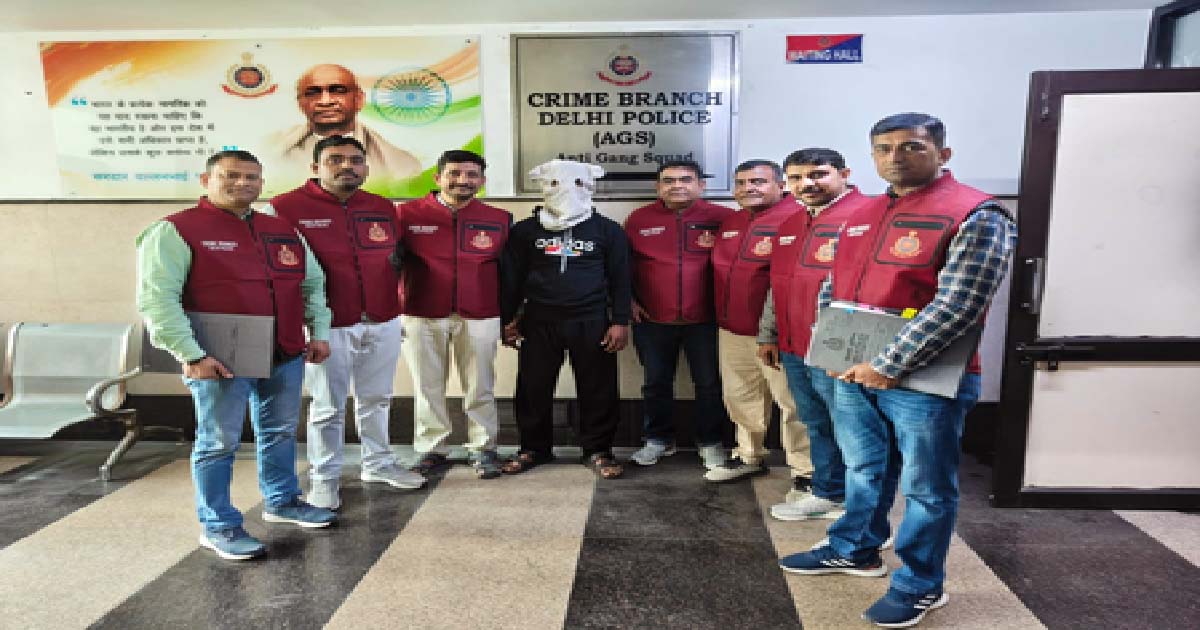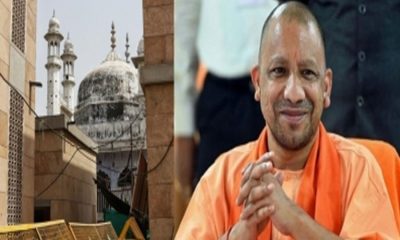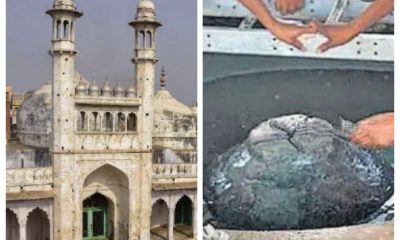Crime
Gyanvapi case now posted for Thursday

The hearing in the Varanasi Gyanvapi Mosque case will now be held from Thursday.
In accordance with the Supreme Court’s orders, the court will take up the Muslim side’s application on the maintainability of the suit under order 7, rule 11.
The process of hearing in the case will start on Thursday (May 26), with the ‘maintainability’ issue coming first. The court also ordered the two sides to file affidavits with their objections to the survey report within a week.
The mosque committee says that filming at the mosque violates a 1991 law that prevents the alteration of the character of any place of worship in the country. It wanted the ‘maintainability’ case to be heard first, which the court has agreed to.
The Supreme Court had asked the Varanasi court to decide on priority whether the survey at the Gyanvapi mosque and the petition that led to the survey was ‘maintainable’ or not.
“I told the court that it is a mandate of the Supreme Court that our application saying the case is not maintainable should be heard first. I read out my application and also the Supreme Court order. The opposing counsel said he needed more documents and time to file objections to our application, but I said the maintainability must be decided first,” said Abhay Nath Yadav, a lawyer for the Mosque committee.
The court also said that both the sides be given copies of the video survey and one week’s time to file their objections, if any.
Early last week, lawyers representing the Hindu petitioners claimed that a ‘Shivling’ was found during the videography survey of the Gyanvapi mosque-Shringar Gauri complex.
The claim was disputed by the mosque committee members who said it was part of the water fountain mechanism in the wuzukhana reservoir, used by devotees to perform ritual ablutions before offering namaz. The district court had then ordered the sealing of the ‘wuzukhana’.
This application relates to whether the reliefs sought by the five Hindu petitioners can even be granted by a court of law. The Muslim side is expected to argue that the suit is barred by the 1991 Place of Worship Act.
There are no specific orders yet on whether the matter will be heard on a day-to-day basis from May 26 onwards. Preliminary arguments will begin on May 26.
The district judge Dr A.K. Vishvesha has also asked for objections to the Gyanvapi mosque survey report filed by the commission from both parties.
It may be recalled that a petition filed in 1991 in a Varanasi court claimed that the Gyanvapi Mosque was built on the orders of Aurangzeb by demolishing a part of the Kashi Vishwanath Temple during his reign in the 16th century.
The petitioners and local priests sought permission to worship in the Gyanvapi Mosque complex.
The Allahabad High Court in 2019 ordered a stay on an ASI survey that was requested by the petitioners.
The current controversy started when five Hindu women sought to routinely worship Shringar Gauri and other idols within the Gyanvapi mosque complex.
Last month, a Varanasi court ordered a videographed survey of the Gyanvapi Masjid complex after the five Hindu women filed pleas, seeking to worship behind the western wall of the premises.
Crime
Samrat Choudhary takes charge as Bihar Home Minister; warns criminals

Patna, Nov 22: After becoming Bihar’s Home Minister, Deputy Chief Minister Samrat Choudhary has taken a tough stance on maintaining law and order in the state.
On Saturday, soon after assuming office, he issued a stern warning to criminals, declaring that no offender would be spared and that the police had been given full freedom to act.
Deputy CM Choudhary said that the police are no longer bound and now have complete authority to take action openly.
He reaffirmed that criminals have no place in Bihar and asserted that the Home Ministry will work under the guidance of Chief Minister Nitish Kumar.
Good governance, he said, existed earlier and would continue even more firmly in the future.
He added that the ‘jungle raj’ that had been eliminated would not be allowed to return.
Responding to a query about his earlier controversial remark — saying that criminals in Bihar would be cremated in Gaya — the State Home Minister said the police were doing their job.
This marks the first time Chief Minister Nitish Kumar has handed over the Home Department to the BJP since 2005.
In the new Cabinet, along with Nitish Kumar, 26 Ministers were sworn-in.
Samrat Choudhary has been appointed both the Deputy Chief Minister and Home Minister, while Vijay Kumar Sinha has also been appointed the Deputy Chief Minister of Bihar.
He is holding the charge of Revenue, Land Reforms and Mining departments in the Nitish Kumar-led Bihar government.
Ministers from all NDA constituents have found a place in the Bihar Cabinet.
The BJP has the highest representation in the state Cabinet with 14 Ministers, followed by Janata Dal-United with eight, Lok Janshakti Party-Ram Vilas with two, Hindustani Awam Morcha (HAM) with one, and Rashtriya Lok Morcha (RLM) with one.
Despite having two Deputy CMs and 14 Ministers, the BJP’s share of the allocated departmental budget is lower compared to JD-U.
The BJP controls 29.22 per cent of the total budget, LJP-RV Ministers 0.91 per cent, HAM 0.58 per cent, and RLM 3.56 per cent.
The remaining departments, accounting for around 65 per cent of the total budget, remain with the JD-U.
Crime
Palghar Crime: 3 Arrested For Attempted Murder And ₹10 Lakh Robbery In Vasai; Police Bust Interstate 6-Member Gang

Palghar, Maharashtra, Nov 22: The Crime Detection Unit (Unit 2) of the Mira-Bhayander, Vasai-Virar Police has arrested three men involved in an attempted murder and armed robbery at a residence in Vasai, recovering gold jewellery and cash worth ₹10 lakh.
The incident took place on November 18 when three unidentified men forcibly entered the home of 37-year-old Geeta Raut in Reliable Glory Building at Sativali, Vasai West.
The intruders threatened Raut and her son Santosh at knifepoint, demanding information about the location of their gold. When Raut said she did not know, one of the assailants attempted to stab her.
She managed to evade the blow but sustained an injury to her left arm. The attackers then broke open a cupboard and escaped with 12 tolas of gold ornaments and a mobile phone.
Following the registration of the case at Waliv Police Station, officials conducted a detailed investigation at the crime scene and surrounding areas.
Through technical analysis and intelligence from informers, the police identified the suspects and learned that they were residing in Nandagaon, Karnataka.
A team was immediately dispatched, and on November 20, three accused were detained along with 8 tolas of stolen gold, cash, and a mobile phone, collectively valued at ₹10 lakh. During interrogation, it was revealed that they were part of a six-member gang involved in the crime.
The arrested accused have been identified as Ashok alias Babu Raju Shinde, a resident of Shantinagar Dongripada in Vasai East originally from Nandagaon in Karnataka; Abdul Rauf Hashmi, a resident of Richard Compound in Manocha Pada, Vasai East originally from Jaunpur in Uttar Pradesh; and Ritik Ravi Belangi, also living in Richard Compound and originally from Nandagaon in Karnataka.
Police have also named three absconding accomplices: Nur Hasan Khan from Patil Wadi in Nalasopara East, Suraj Kishor Jadhav from Shantinagar in Nalasopara East, and Kalu Prabhakar Sahu from Kendrapara in Odisha.
The detained suspects have been handed over to Waliv Police for further action under relevant sections of the Bharatiya Nyaya Sanhita. Further investigation is underway.
Crime
Delhi: AGS arrests accused wanted in attempt-to-murder case in Timarpur

New Delhi, Nov 22: A team of the Anti-Gangster Squad (AGS), led by Inspector Krishan Kumar on Saturday arrested 32-year-old accused Rajeev alias Raj in Timarpur. He was wanted in a sensational attempt-to-murder case registered under FIR No. 529/2025 on October 25, under Sections 109(1)/3(5) of the BNS. The accused had been absconding since the incident.
According to a statement issued by the AGS, on October 24 at around 7 p.m., an altercation took place between Rajeev and Vishal near the Sulabh Shauchalaya in Sanjay Basti, Timarpur. Acting as a responsible citizen, Rahul, the complainant, made a PCR call to report the quarrel. When the accused learned that Rahul had informed the police, both Rajeev and Vishal became enraged and attacked him with a knife, inflicting multiple injuries.
After the attack, both accused fled the scene. A case was subsequently registered under FIR No. 529/2025 at Timarpur Police Station. Both men remained absconding until Rajeev’s arrest.
With Rajeev’s arrest, the sensational attempt-to-murder case has been partially solved. Vishal, however, is still on the run.
In response to rising incidents of street crime, armed assaults, and gang-related activities in the national Capital, the Crime Branch of the Delhi Police has intensified efforts to trace and apprehend active and absconding criminals. The AGS has been specifically tasked with developing Intelligence networks and conducting surveillance on such offenders across Delhi and neighbouring states.
A dedicated AGS team led by Inspector Krishan Kumar and comprising SI Agam Prasad, SI Braj Lal, ASI Gobind, ASI Surender, ASI Mintu, HC Vinod, HC Dharmraj, and HC Deepak was formed under the close supervision of Bhagwati Prasad, ACP/AGS, and the direction of Harsh Indora, IPS, DCP/Crime Branch, to trace the accused.
The team conducted persistent manual Intelligence gathering along with technical surveillance on Rajeev’s movements. On November 20, the team received credible secret information regarding his location. Acting swiftly, the AGS laid surveillance and successfully apprehended Rajeev from Dwarka Mor, Delhi.
During sustained interrogation, the accused admitted to his involvement in the attempt-to-murder case and revealed several past involvements in criminal activities.
Rajeev, a resident of Sanjay Basti, Timarpur, lives with his mother, younger brother Vishal, sister Babita, wife Simran, and four-year-old son. He is uneducated and works as a caretaker at a Sulabh toilet in Timarpur.
Due to drug addiction and association with criminal elements, he has been involved in unlawful activities since childhood and has been imprisoned multiple times. He is a declared Bad Character (BC) of PS Timarpur and a previous convict in FIR No. 190/2009, registered under Sections 395/397/34 of the IPC at PS Dwarka Sector-23, Delhi.
-

 Crime3 years ago
Crime3 years agoClass 10 student jumps to death in Jaipur
-

 Maharashtra1 year ago
Maharashtra1 year agoMumbai Local Train Update: Central Railway’s New Timetable Comes Into Effect; Check Full List Of Revised Timings & Stations
-

 Maharashtra1 year ago
Maharashtra1 year agoMumbai To Go Toll-Free Tonight! Maharashtra Govt Announces Complete Toll Waiver For Light Motor Vehicles At All 5 Entry Points Of City
-

 Maharashtra1 year ago
Maharashtra1 year agoFalse photo of Imtiaz Jaleel’s rally, exposing the fooling conspiracy
-

 National News1 year ago
National News1 year agoMinistry of Railways rolls out Special Drive 4.0 with focus on digitisation, cleanliness, inclusiveness and grievance redressal
-

 Maharashtra1 year ago
Maharashtra1 year agoMaharashtra Elections 2024: Mumbai Metro & BEST Services Extended Till Midnight On Voting Day
-

 National News1 year ago
National News1 year agoJ&K: 4 Jawans Killed, 28 Injured After Bus Carrying BSF Personnel For Poll Duty Falls Into Gorge In Budgam; Terrifying Visuals Surface
-

 Crime1 year ago
Crime1 year agoBaba Siddique Murder: Mumbai Police Unable To Get Lawrence Bishnoi Custody Due To Home Ministry Order, Says Report


















